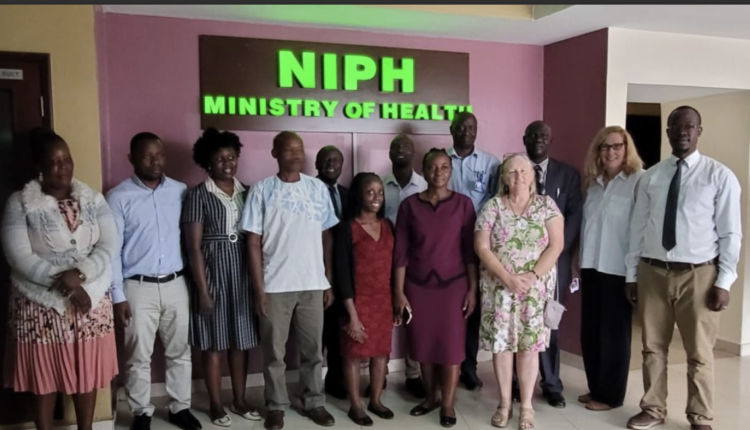The Uganda Public Health Fellowship Program Commences its First Cohort of the Two-year Laboratory Leadership Track
Authors: Samuel Gidudu1*, Waako Susan1, Daniel Kadobera1, Susan Nabadda2, Alex Ario Riolexus1; Institutional affiliations: 1 Uganda Public Health Fellowship Program, Uganda National Institute of Public Health, 2National Health Laboratory and Diagnostic Services; Correspondence*: Email: gidudusam@uniph.go.ug, Tel: +256704777931
The Uganda Public Health Fellowship Program (PHFP) started in 2015 with the field epidemiology track and now on board is the laboratory track. The PHFP-Laboratory Leadership Program (PHFP-LLP), is a 2-year in service field training fellowship where fellows focus on developing competency through providing laboratory leadership services in laboratory-based surveillance, laboratory quality management systems, policy and management, outbreak investigation and coordination. The aim of the PHFP-LLP is to develop laboratory leaders who will manage public health laboratory systems in the country. This is through building competencies in key areas of laboratory leadership among laboratory specialists through the two-year fellowship program.
The program provides opportunities for fellows to conduct daily mission-critical technical service to human and animal health on behalf of the Ministry of Health (MoH) and the Ministry of Agriculture, Animal Industry and Fisheries (MAAIF). The PHFP-LLP also presents opportunity for developing laboratory management skills needed to assess, evaluate, and monitor the laboratory capacity to handle outbreak investigations and improve on the quality and integration of laboratory services alongside epidemiology services in human and animal sectors.
The PHFP-LLP includes seven didactic sessions which are two weeks in a quarter with mentorships in between the didactic sessions. These didactic sessions are conducted at the Uganda national institute of public health while the mentorship sessions are conducted at the fellows’ workplaces which also serves as the program’s host site. The program is designed to link learning outcomes of the didactic sessions with real-world projects and experiences in laboratory leadership in both human and animal health domains.
The first cohort of fellows is comprised of six persons (three male and three female) with a masters’ degrees in molecular biology and biotechnology (1), biomedical laboratory sciences and management (2), international infectious disease management (1), molecular biology (1) and immunology and clinical microbiology (1). Four of these have a bachelor’s degree in biomedical laboratory technology while two have bachelor’s degree in Science technology (Biology). These fellows are from five host sites and these include Central Public Health Laboratories (2), Uganda Virus Research Institute (1), National Animal Disease Diagnostics and Epidemiology Centre (1), Infectious Disease Institute (1) and Mildmay Uganda (1)



Comments are closed.